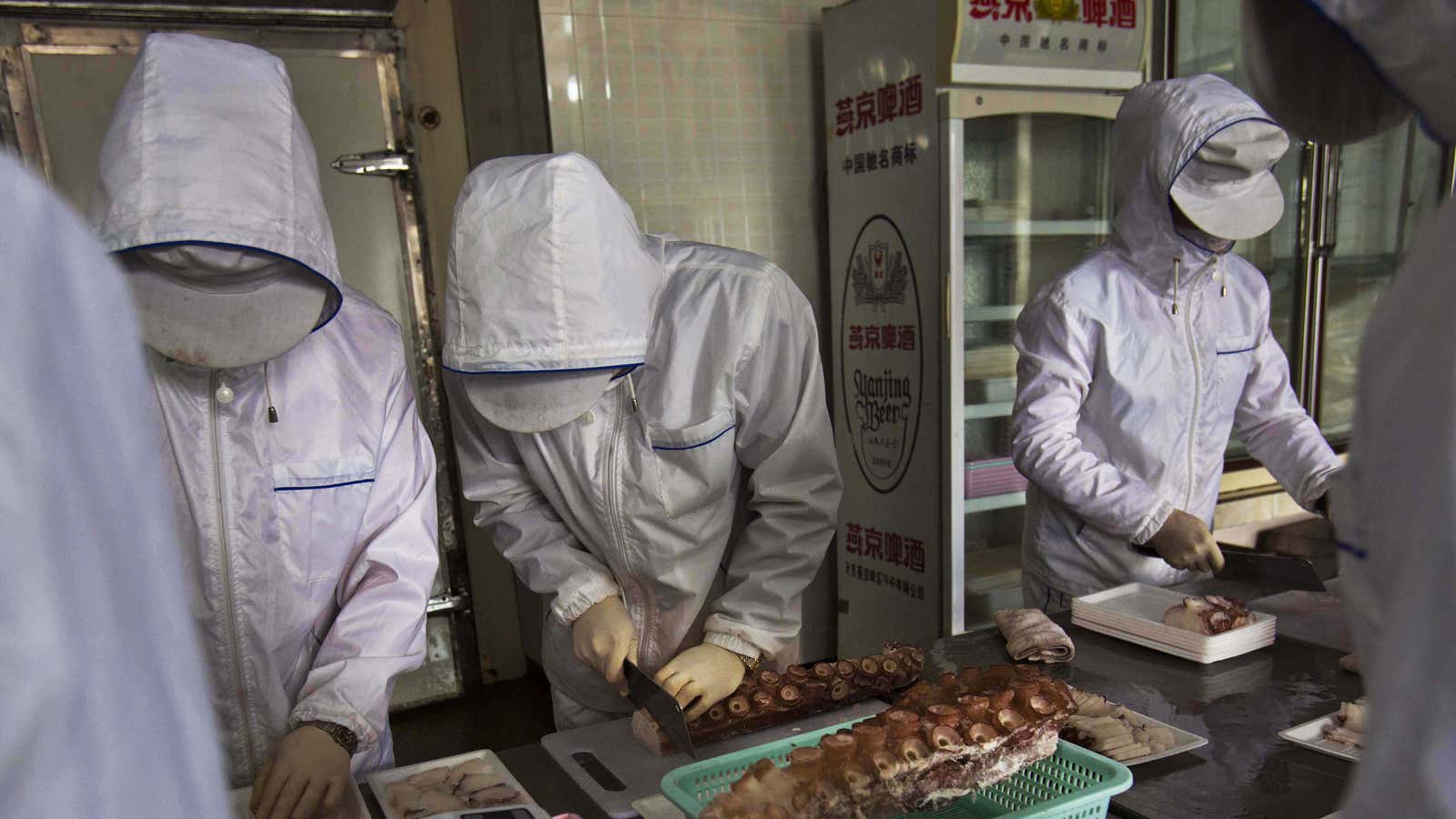The downfall of senior North Korean official Jang Song-thaek—the uncle of leader Kim Jong-un who was denounced earlier this month as “worse than a dog” before being executed for “criminal acts”—has inspired consternation and befuddlement among the hermit kingdom’s allies and enemies alike.
But according to new accounts by American and South Korean officials, Jang’s downfall can be traced in part to a power struggle, not over the country’s nuclear program or the dynastic succession of the Kim family, but the makings of a decent bouillabaisse—more specifically the crab and clam exports that provide North Korea with a crucial source of hard currency.
The New York Times reports that Jang had seized control over North Korea’s crab and clam fishing grounds when his nephew took power two years ago. When the North Korean military was sent to reclaim them, Jang’s forces—presumably fortified by hearty seafood dishes—easily won a battle against their “emaciated” army counterparts. Jang’s control of North Korea’s even more sizable coal exports also played a role in his downfall, according to testimony by South Korea’s spy chief, but the seafood skirmish “reportedly enraged” Jang’s nephew.
North Korea’s seafood exports had been on the rise, with Daily NK reporting that the flow of horsehair crabs, scallops, and other marine goods rising from one ton to three tons a month in November, according to a Chinese trader. The country’s seafood is especially prized in China and even South Korea, where it is banned, because it is harvested from the pollution-free waters of the Sea of Japan.
Many of the country’s seafood exports are routed through the North Korean special enterprise zone of Rason, near the Chinese border. But the fate of those zones are currently in doubt now that their creator Jang Song-thaek sleeps with the fishes.




